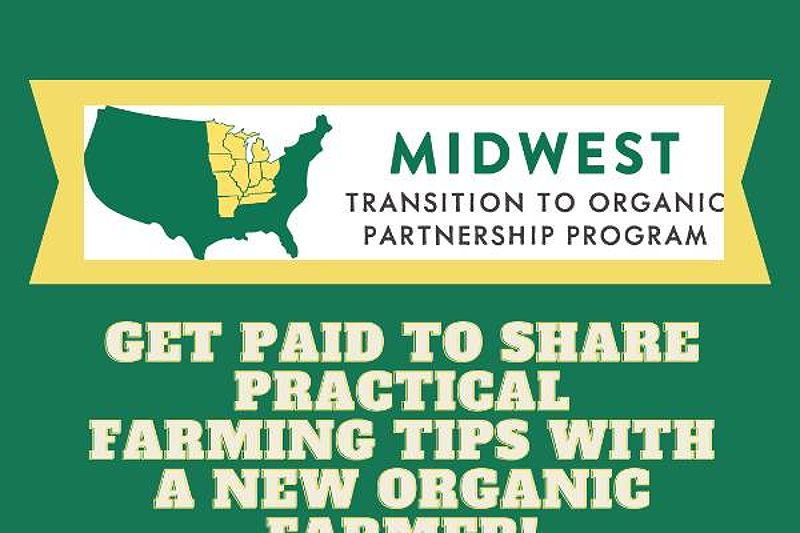Join the Transition to Organic Partnership Program by USDA and receive mentorship and financial incentives as you transition to organic farming. Mentors receive $3,000 while mentees receive a stipend of $500 upon completion. Apply now!
Transition to Organic Partnership Program: Mentorship for Farmers
Join the Transition to Organic Partnership Program offered by the United States Department of Agriculture (USDA) and receive mentorship and financial incentives as you transition to organic farming. This program aims to support farmers who are transitioning to organic production through mentorship opportunities.

( Credit to: Canr )
Whether you are an experienced organic farmer willing to mentor others or a farmer in the process of transitioning, this program provides valuable resources and financial incentives. Mentors in the program will receive a payment of $3,000 for their guidance and support. On the other hand, transitioning farmer mentees will receive a stipend of $500 upon completing the mentorship.
Both mentors and mentees are required to commit to 40 hours of engagement per year, including farm visits, monthly meetings, attending educational events together, and providing assistance as needed. Additionally, mentors and mentees will go through onboarding, trainings, evaluations, quarterly check-ins with the program coordinator, and tracking of meeting hours.
Mentees are expected to pursue organic certification and develop an organic system plan, while mentors must be current or former certified organic farmers. The Transition to Organic Partnership Program welcomes farmers from diverse backgrounds and encourages individuals from underrepresented groups such as farmers of color, veterans, women, Spanish speakers, lower income farmers, young farmers, and beginning farmers to apply.
All types of crops, livestock species, and farm operations are eligible for this program. In Michigan, the Transition to Organic Partnership Program aims to connect 30 farmers each year with experienced mentors who can guide them through the transition to organic growing practices. Technical assistance will also be provided to hundreds of farmers considering or in the process of transitioning to organic farming.
Workshops on organic farming and the certification process will be available online, on-farms, and at conferences, allowing transitioning farmers, experienced organic farmers, and farm educators to learn and share knowledge. These workshops and field days will be shaped by the input and suggestions of farmers through an annual Farmer Brain Trust event.
To further facilitate the transition to organic farming, the program will fund six partner organizations in Michigan to organize events where farmers can discuss the benefits and challenges of organic certification with trusted peers. Additionally, the program will establish a webpage and monthly email updates to inform farmers about job opportunities in the organic and sustainable farming sector, contributing to the development of the next generation of organic farmers.
The Transition to Organic Partnership Program is part of the USDA’s Organic Transition Initiative, a $300 million effort. This initiative also includes direct payments to farmers through the Natural Resources Conservation Service organic management standard and assistance with crop insurance premiums for transitioning farmers. Furthermore, the program aims to improve supply chains for marketing organic farm products.
If you are interested in becoming a mentor or a transitioning farmer mentee, applications are now open. You can find more information and access the application forms on the Transition to Organic Partnership Program website. For specific inquiries, you can contact Katie Brandt at brandtk7@msu.edu or Mariel Borgman at mborgm@msu.edu.
This program presents an exciting opportunity for Michigan’s future organic farmers to connect with mentors, networks, and educational opportunities. By supporting the transition to organic farming, the USDA is promoting sustainable agricultural practices and expanding the organic market.
